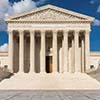Employers Must Clarify a Request to Bargain on Effects of Non-Negotiable Decisions

April 2013
Number 19
The Public Employment Relations Board (PERB) recently expanded an employer's obligation to act when a union requests to bargain over the effects on a non-negotiable decision, holding that "clarification is essential."
In California School Employees Association & Its Chapter 477 v. Rio Hondo Community College District (2013) PERB Decision No. 2313 (Rio Hondo), the District informed CSEA that it intended to install security cameras in its new Learning Resource Center. The cameras would capture activities such as bargaining unit members coming and going, entering and leaving a break room, and cleaning public areas of the building. CSEA requested that the District bargain the effects of the decision, stating in its demand that the cameras impacted working conditions such as "performance evaluations and potential discipline." The District denied the request because it did not clearly identify the specific effects that justified negotiations.
PERB ruled in favor of CSEA, concluding that the District committed an unfair labor practice when it refused to bargain over the effects of a decision to install security cameras. In reaching its ruling, PERB noted that the "proper place to clarify bargaining demands and proposals is at the bargaining table itself." According to PERB, "[t]his is especially true in effects bargaining, where parties must anticipate the future impact of a non-negotiable decision announced but not yet implemented." Thus, "refusing an effects bargaining demand without first attempting to clarify ambiguities and or whether matters proposed for bargaining fall within the scope of representation violates the duty to bargain in good faith." (citing Healdsburg Union High School District, et. al, v. San Mateo City School District (1983) PERB Decision No. 375.)
In the Rio Hondo decision, PERB held that CSEA's demand to bargain over the effects of a decision was sufficient because it: (a) clearly identified negotiable areas of impact within the scope of representation and (b) clearly indicated a desire to bargain over the effects of the decision rather than the decision itself. Prior to this decision, it was commonly understood that PERB would follow the authority ofNewman-Crows Landing Unified School District (1982) PERB Decision No. 223 and its progeny. That precedent appeared to require that a union identify the specific effects of a decision on matters within the scope of representation, without obligating the employer to seek clarification. PERB distinguished the Newman-Crows holding and related cases in reaching this decision. Accordingly, employers now have a duty to seek clarification in response to a demand for "effects bargaining" before taking the position that a union's demand is unwarranted.
If you have any questions regarding this decision or employee discipline issues in general, please feel free to contact one of our eight offices located statewide. You can also visit our website, follow us on Facebook, or download our Client News Brief App.
Number 19
The Public Employment Relations Board (PERB) recently expanded an employer's obligation to act when a union requests to bargain over the effects on a non-negotiable decision, holding that "clarification is essential."
In California School Employees Association & Its Chapter 477 v. Rio Hondo Community College District (2013) PERB Decision No. 2313 (Rio Hondo), the District informed CSEA that it intended to install security cameras in its new Learning Resource Center. The cameras would capture activities such as bargaining unit members coming and going, entering and leaving a break room, and cleaning public areas of the building. CSEA requested that the District bargain the effects of the decision, stating in its demand that the cameras impacted working conditions such as "performance evaluations and potential discipline." The District denied the request because it did not clearly identify the specific effects that justified negotiations.
PERB ruled in favor of CSEA, concluding that the District committed an unfair labor practice when it refused to bargain over the effects of a decision to install security cameras. In reaching its ruling, PERB noted that the "proper place to clarify bargaining demands and proposals is at the bargaining table itself." According to PERB, "[t]his is especially true in effects bargaining, where parties must anticipate the future impact of a non-negotiable decision announced but not yet implemented." Thus, "refusing an effects bargaining demand without first attempting to clarify ambiguities and or whether matters proposed for bargaining fall within the scope of representation violates the duty to bargain in good faith." (citing Healdsburg Union High School District, et. al, v. San Mateo City School District (1983) PERB Decision No. 375.)
In the Rio Hondo decision, PERB held that CSEA's demand to bargain over the effects of a decision was sufficient because it: (a) clearly identified negotiable areas of impact within the scope of representation and (b) clearly indicated a desire to bargain over the effects of the decision rather than the decision itself. Prior to this decision, it was commonly understood that PERB would follow the authority ofNewman-Crows Landing Unified School District (1982) PERB Decision No. 223 and its progeny. That precedent appeared to require that a union identify the specific effects of a decision on matters within the scope of representation, without obligating the employer to seek clarification. PERB distinguished the Newman-Crows holding and related cases in reaching this decision. Accordingly, employers now have a duty to seek clarification in response to a demand for "effects bargaining" before taking the position that a union's demand is unwarranted.
If you have any questions regarding this decision or employee discipline issues in general, please feel free to contact one of our eight offices located statewide. You can also visit our website, follow us on Facebook, or download our Client News Brief App.
As the information contained herein is necessarily general, its application to a particular set of facts and circumstances may vary. For this reason, this News Brief does not constitute legal advice. We recommend that you consult with your counsel prior to acting on the information contained herein.






